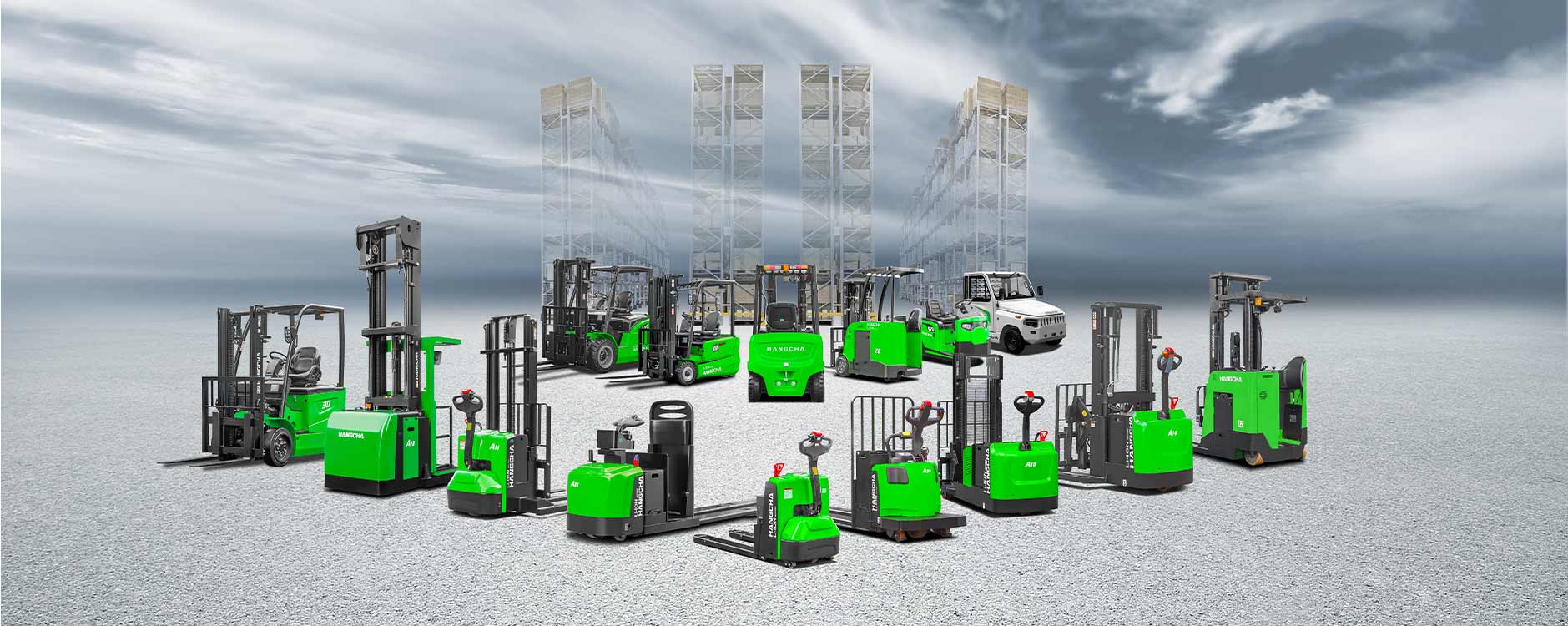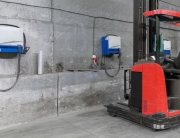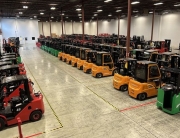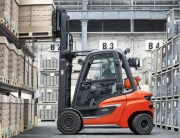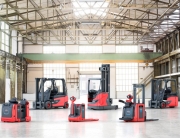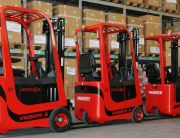Lithium battery technology is used in a wide range of applications from small electronics to electric vehicles and equipment. Click on each section to learn more about lithium batteries and the great benefits they offer you.
- What Is a Lithium Battery?
- How is Lithium Battery Technology Different from Other Power Sources?
- Lithium Battery Technology: Cars vs. Industrial Trucks
- What is LiFePO4?
If you are in the market for an electric forklift, contact us. We can answer all your questions and help you choose the perfect model and specifications for your needs.
Lithium Battery Technology
1. What Is a Lithium Battery?
A lithium battery is a type of battery that is made using lithium, a special kind of metal. These batteries are used to power many things we use every day including:
- Cellphones
- Laptops
- Electric cars
- Electric Forklifts
Industrial or vehicle lithium batteries, like the ones used in electric cars or big machinery, work on the same basic principle as the smaller lithium batteries in our phones or laptops, but just on a much larger scale.
How a Lithium Battery Works:
Learn more about how a lithium battery works by watching the above video.
A lithium battery is made up of smaller units called cells. Each cell works like a tiny battery on its own. They’re connected to form a big battery pack which is what powers your vehicle or device.
Chemical Reactions:
Inside each cell, some materials let lithium ions move around. When the battery is charging, these lithium ions move from one part of the cell to the other through a special liquid or solid material called an electrolyte. This movement stores energy.
Discharging Power:
When the battery is being used, like when a car is running or when your forklift is operating, the lithium ions move in the opposite direction, creating an electric current. This current powers the vehicle or the machinery.
Battery Management System:
To keep everything safe and working well, the bigger batteries used in vehicles and machinery have a battery management system (BMS). This management system balances the charging and discharging of each cell, making sure they don’t get too full or too empty, which could be dangerous or reduce your battery’s life.
Power Output:
The more cells that are connected, the more energy the battery can store and provide. That’s why these big batteries have many cells in a pack, allowing them to produce enough power to drive a vehicle or run heavy machinery.
2. How is Lithium Battery Technology Different from Other Power Sources?
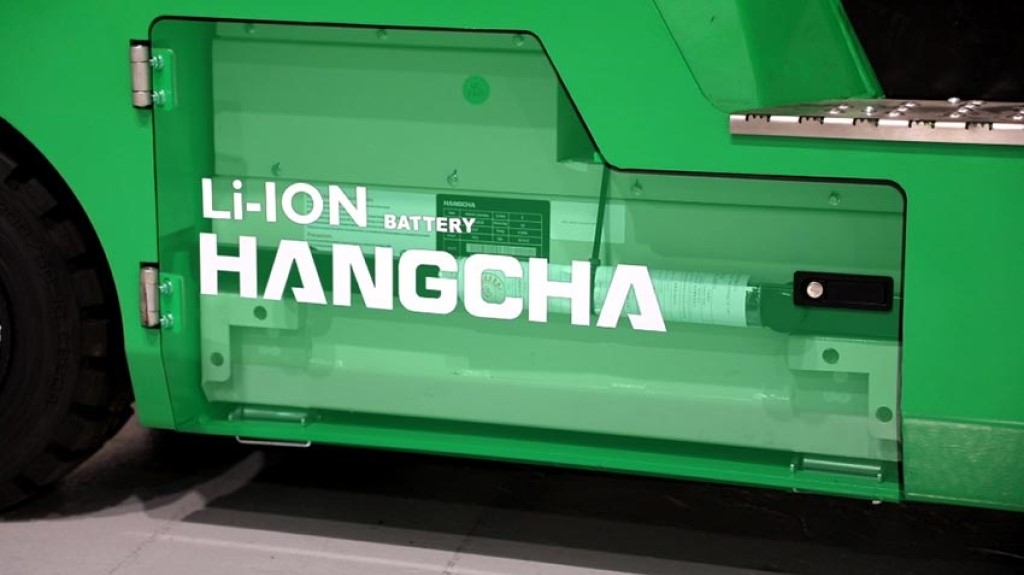
Lithium batteries can store more energy than other types of rechargeable batteries.
Lithium battery technology differs from other power sources in several significant ways including the following:
Energy Density:
Lithium batteries typically have higher energy density compared to other rechargeable batteries like nickel-metal hydride (NiMH) or lead-acid batteries. This means they can store more energy in a smaller and lighter package, making them ideal for portable devices and electric vehicles.
Voltage and Performance:
Lithium batteries usually provide a higher voltage and more consistent performance throughout their discharge cycle compared to other battery types. This consistent power output is beneficial for applications requiring steady power delivery.
Weight and Size:
Lithium batteries are relatively lightweight and compact for the amount of energy they can store, making them suitable for portable electronics and devices where space and weight are important.
Charge Retention:
Lithium batteries have a low self-discharge rate, meaning they retain their charge for longer periods when not in use compared to some other battery chemistries. This feature makes them more practical for devices or equipment that aren’t frequently used.
Cycle Life:
In general, lithium batteries tend to have a longer cycle life, capable of enduring a higher number of charge and discharge cycles compared to many other rechargeable batteries.
Safety:
While all batteries carry some risk, lithium batteries are known for their safety features and advancements in battery management systems to prevent:
- Overheating
- Explosions
- Fires
However, it’s important to handle them properly and avoid physical damage or misuse.
Cost:
Initially, lithium batteries might have a higher upfront cost compared to other types of batteries, but their longer lifespan and higher performance often make them more cost-effective over the long term.
Environmental Impact:
Depending on the disposal and recycling methods, lithium batteries can have less of an environmental impact compared to some other battery chemistries, primarily due to their longer lifespan and higher energy efficiency.
3. Lithium Battery Technology: Cars vs. Industrial Trucks
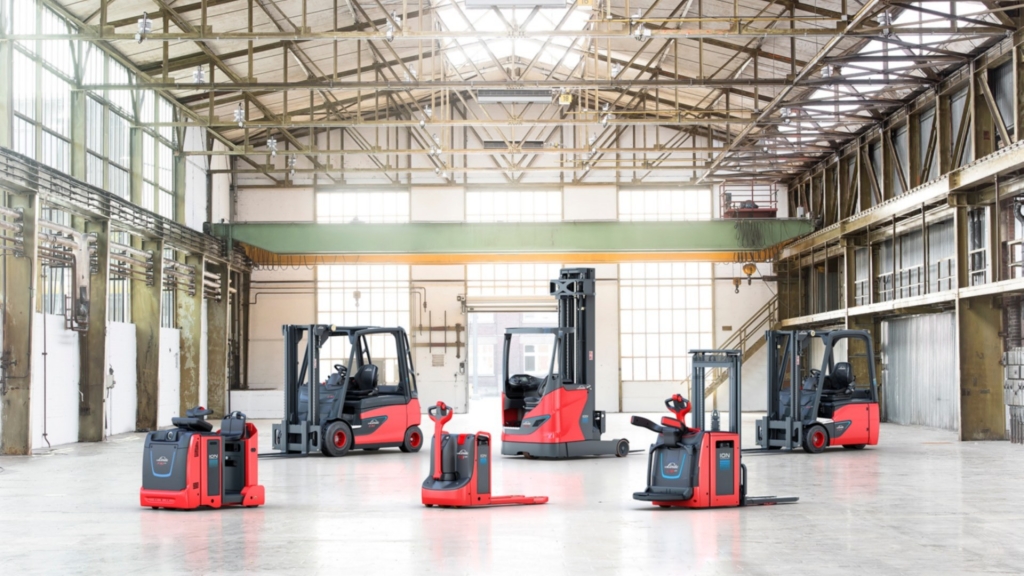
Industrial trucks such as forklifts will often need a lithium battery with higher outputs and capacities.
While the core technology of lithium-ion batteries remains the same, you will find that there are some differences between the lithium battery technology used in electric cars and the technology used in industrial trucks or heavy machinery.
Here are a few key differences:
Power Output and Capacity:
Industrial trucks and heavy machinery, including forklifts, often require larger batteries with higher power outputs and capacities compared to regular cars. Industrial applications need to handle heavier loads and more demanding tasks, so their batteries might be designed to deliver more power over longer periods.
Design and Size:
While both car and industrial truck batteries use lithium-ion technology, the design and size can vary significantly. Industrial batteries might be larger and more modular so that you can replace them more easily and so that they will fit the different designs of equipment.
Durability and Lifespan:
Compared to car batteries, industrial batteries need to withstand:
- Harsher conditions
- Frequent charging cycles
- Heavier use
Because of this, industrial applications often demand lithium batteries that are more durable and have longer lifespans.
Safety and Management Systems:
Both types of batteries have management systems to ensure safe and efficient operation. However, industrial batteries may have more a sophisticated battery management system to handle higher voltages, larger currents, and more complex charging and discharging cycles.
Charging Infrastructure:
Industrial machinery might have specialized charging setups due to their larger power requirements. This could include rapid charging stations or specialized connectors to accommodate their higher power needs.
4. What is LiFePO4
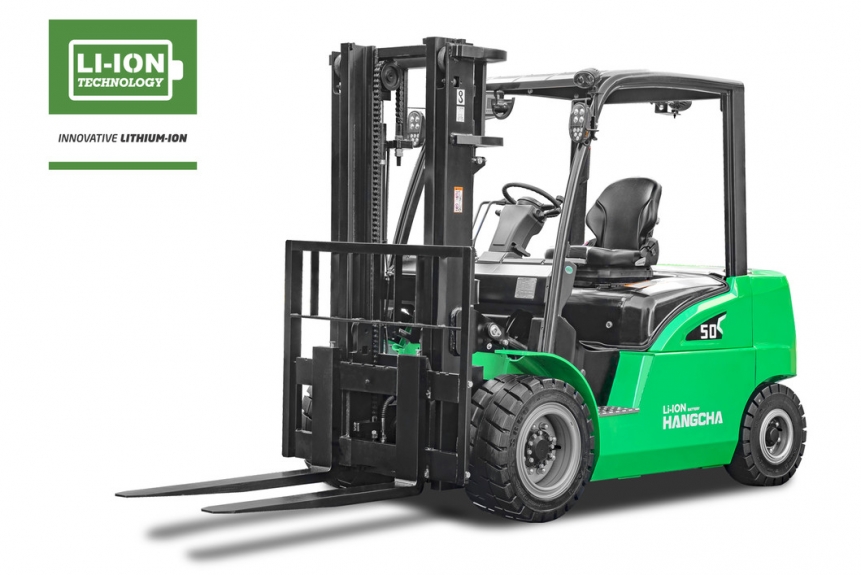
Many Hangcha lithium battery forklifts use LiFePO4.
LiFePO4 stands for lithium iron phosphate, which is a type of rechargeable battery chemistry. It’s a specific kind of lithium-ion battery that uses lithium iron phosphate as the cathode material. LiFePO4 batteries are used in various applications including the following:
- Electric vehicles
- Electric forklifts (including some models manufactured by Hangcha)
- Renewable energy storage (like solar and wind power systems),
- Portable electronic devices
- Backup power systems
Here are a few key things you should know about LiFePO4 batteries:
Safety:
LiFePO4 batteries are known for their safety. They’re more resistant to overheating and are less prone to catching fire compared to some other types of lithium-ion batteries. This makes them a popular choice in applications where safety is a priority.
Stability:
They have good thermal and chemical stability, which means they are less likely to degrade or experience thermal runaway (a situation where the battery heats up rapidly due to an uncontrollable chain reaction).
Longer Lifespan:
LiFePO4 batteries tend to have a longer lifespan compared to other lithium-ion batteries. They can withstand a higher number of charge and discharge cycles, making them durable and reliable for long-term use.
Lower Energy Density:
Compared to some other types of lithium-ion batteries, LiFePO4 batteries have a slightly lower energy density. This means they may have a slightly lower capacity to store energy for their size, but they make up for it in safety and longevity.
Interested in a Lithium Battery Forklift?
If you are in the market for a new forklift, contact us. We have a wide selection of new and used forklifts including ones powered by lithium batteries. Our knowledgeable staff can help you choose the perfect truck for your needs.
Since 1977, Ri-Go Lift Truck has been serving customers in Ontario and Quebec with everything they need for material handling. We are committed to providing you with quality service and a high level of customer satisfaction.
We are your authorized dealer for the following top brands:
- Linde Lift Trucks, Power Pallet Trucks, Tow Tractors and Stackers
- Blue Giant Lift Trucks and Pallet Movers
- Komatsu Forklifts and Reach Trucks
- Mariotti Lift Trucks – The Worlds Smallest Lift Truck
- Baoli Lift Trucks
- Advance Sweepers and Scrubbers
- Skyjack Genie Booms and Scissor Lifts
We are also proud to offer you the full lineup of Hangcha forklifts!

In addition to our authorized distributorships, we can also provide you with:
- Large selection of used forklifts
- Operator Training Department – open 7 days a week
- Parts Departments – over 1.4 million dollars of parts on hand for all makes and models
- Service Department – highly trained technicians
- Leasing and Rentals
No matter what your material handling needs are, we can help. Contact us today to let us know how we can be of service.
What Our Customers Think…
“Over 20 years doing business with Ri-go, in maintaining and renting us industrial power equipment. A big business with a real family way of treating the customers. They are experts in the industries they are involved in, and have been an important supplier for me for years. Moving forklifts, installing battery hoists, repairs, etc. If it’s something they don’t normally do, they make the effort to find us someone who can. Very very happy with everyone at Ri-Go.”
Paul Heggie



